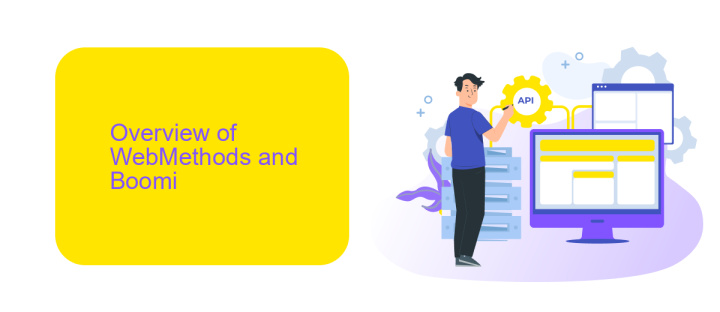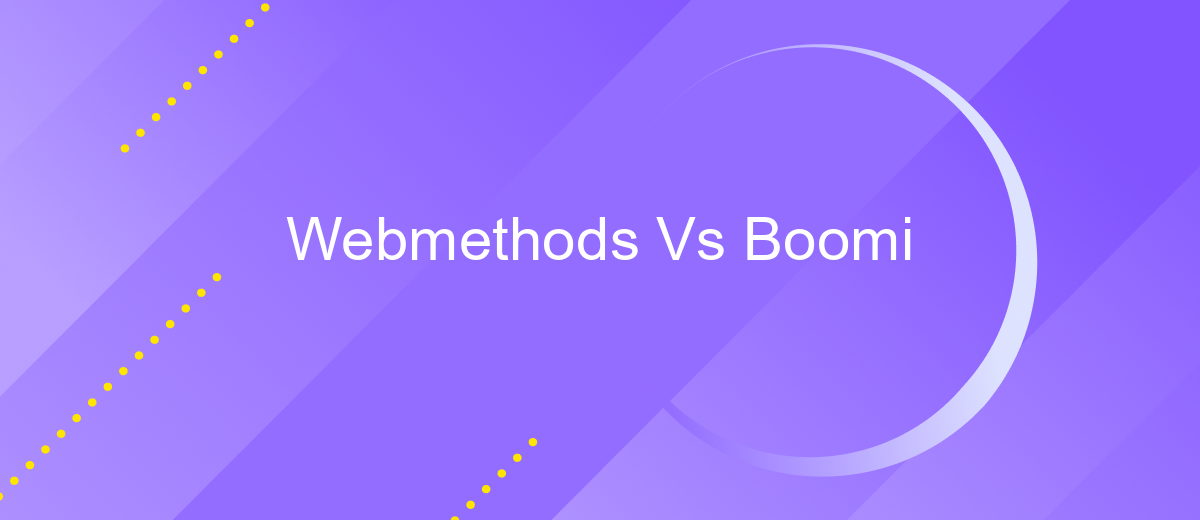Webmethods Vs Boomi
In today's fast-paced digital landscape, businesses seek robust integration solutions to streamline operations and enhance connectivity. Two prominent players in the integration platform market are Webmethods and Boomi. This article delves into a comparative analysis of these platforms, examining their features, capabilities, and overall performance to help organizations make informed decisions on which solution best fits their needs.
Introduction
In the rapidly evolving landscape of enterprise integration, choosing the right platform is crucial for seamless connectivity and efficient workflow automation. Webmethods and Boomi are two of the leading integration platforms that cater to diverse business needs, offering robust solutions to manage and streamline data flows across various systems and applications.
- Webmethods: Known for its comprehensive suite of tools, Webmethods provides extensive capabilities for API management, B2B integration, and data synchronization.
- Boomi: A cloud-native integration platform, Boomi excels in ease of use, rapid deployment, and scalability, making it ideal for businesses of all sizes.
As businesses increasingly rely on integration platforms to drive digital transformation, understanding the strengths and differences of Webmethods and Boomi becomes essential. Additionally, tools like ApiX-Drive further enhance integration capabilities by offering user-friendly solutions for automating workflows and data exchanges between various applications, ensuring a cohesive and efficient operational environment.
Overview of WebMethods and Boomi

WebMethods and Boomi are two prominent integration platforms that facilitate seamless connectivity between diverse systems and applications. WebMethods, developed by Software AG, is renowned for its robust integration capabilities, enabling enterprises to connect disparate systems, streamline business processes, and enhance data flow across the organization. It offers a comprehensive suite of tools for API management, B2B integration, and IoT, making it a versatile choice for large-scale enterprises with complex integration needs.
Boomi, a Dell Technologies business, is a cloud-native integration platform as a service (iPaaS) that simplifies the integration process with its user-friendly interface and extensive pre-built connectors. It is designed to cater to businesses of all sizes, providing rapid deployment and scalability. Boomi's drag-and-drop functionality and low-code environment make it accessible for users with varying technical expertise. Additionally, services like ApiX-Drive can complement Boomi by offering specialized integration solutions, further enhancing the efficiency and effectiveness of business processes.
Feature Comparison

When comparing Webmethods and Boomi, it's essential to consider their key features and capabilities. Both platforms offer robust integration solutions, but they have distinct differences that may influence your choice depending on your needs.
- Ease of Use: Boomi is known for its user-friendly interface, making it easier for non-technical users to create and manage integrations. Webmethods, while powerful, has a steeper learning curve.
- Scalability: Webmethods excels in handling complex, large-scale integrations, making it ideal for enterprises. Boomi is also scalable but is often preferred by mid-sized businesses for its simplicity.
- Integration Capabilities: Both platforms support a wide range of applications and protocols. However, Webmethods offers more extensive support for legacy systems and complex B2B integrations. Boomi, on the other hand, integrates well with modern SaaS applications and offers pre-built connectors for popular services like ApiX-Drive.
- Cost: Boomi generally offers a more cost-effective solution for small to mid-sized businesses, while Webmethods can be more expensive but provides a higher level of customization and support for large enterprises.
In conclusion, the choice between Webmethods and Boomi depends on your specific requirements. For large enterprises with complex integration needs, Webmethods may be the better choice. For smaller businesses looking for ease of use and cost-effectiveness, Boomi, with its modern SaaS integration capabilities and support for services like ApiX-Drive, might be more suitable.
Benefits and Drawbacks

When comparing Webmethods and Boomi, it's essential to understand the benefits and drawbacks of each platform. Webmethods offers robust integration capabilities, extensive support for various protocols, and high scalability, making it suitable for large enterprises. On the other hand, Boomi is known for its user-friendly interface, rapid deployment, and strong cloud-native capabilities, which are ideal for businesses looking for quick and efficient integration solutions.
Both platforms have their unique strengths and weaknesses. While Webmethods provides deep customization and control, it often requires significant expertise and resources to manage. Boomi, with its intuitive design, reduces the complexity of integration tasks but may not offer the same level of customization as Webmethods.
- Webmethods: High scalability, extensive protocol support, deep customization
- Boomi: User-friendly interface, rapid deployment, cloud-native
For businesses looking to streamline their integration processes, using services like ApiX-Drive can be beneficial. ApiX-Drive simplifies the integration setup, allowing companies to connect various applications and automate workflows without extensive technical knowledge. This can complement both Webmethods and Boomi, enhancing their integration capabilities and reducing the time and effort required for implementation.
Conclusion
In conclusion, both Webmethods and Boomi offer robust solutions for integration needs, but the choice between the two largely depends on specific business requirements and technical preferences. Webmethods excels in providing a comprehensive suite of tools for complex integrations and enterprise-level applications, making it a strong contender for large organizations with intricate workflows. On the other hand, Boomi's cloud-native architecture and user-friendly interface make it an ideal choice for businesses seeking rapid deployment and ease of use.
For those looking to streamline their integration processes further, leveraging services like ApiX-Drive can be highly beneficial. ApiX-Drive simplifies the integration setup, allowing businesses to connect various applications effortlessly without extensive coding knowledge. This can be particularly advantageous for companies that need to integrate multiple platforms quickly and efficiently. Ultimately, the decision should be guided by the specific needs of the organization, the complexity of the required integrations, and the desired balance between functionality and ease of use.
FAQ
What are the key differences between Webmethods and Boomi?
Which platform is better for small to medium-sized businesses?
Can both Webmethods and Boomi handle real-time data integration?
How do these platforms support API management?
What are the options for automating integrations without extensive coding knowledge?
Time is the most valuable resource in today's business realities. By eliminating the routine from work processes, you will get more opportunities to implement the most daring plans and ideas. Choose – you can continue to waste time, money and nerves on inefficient solutions, or you can use ApiX-Drive, automating work processes and achieving results with minimal investment of money, effort and human resources.

